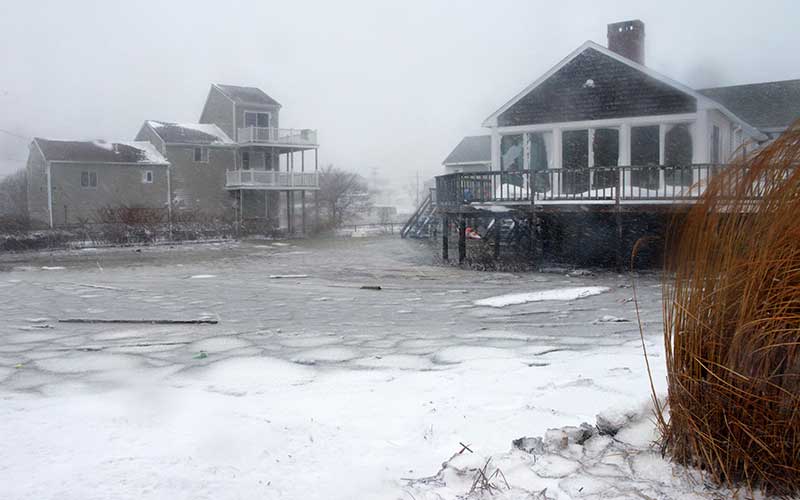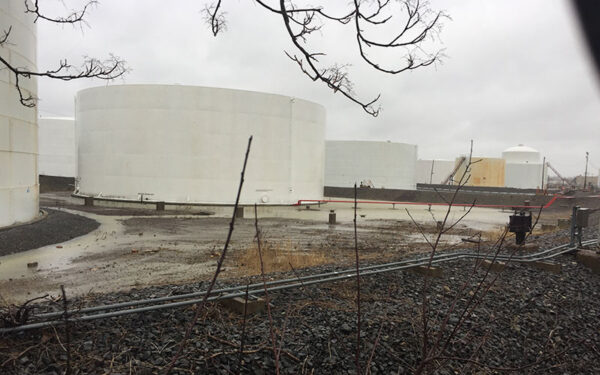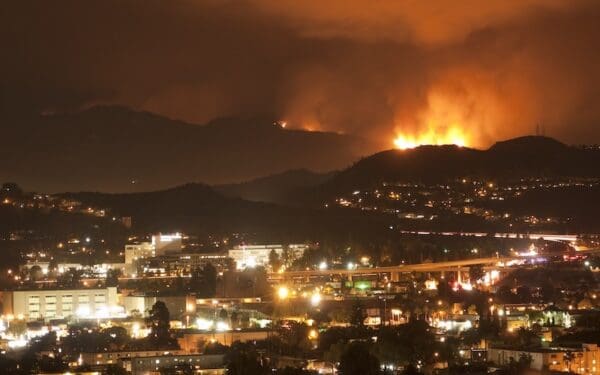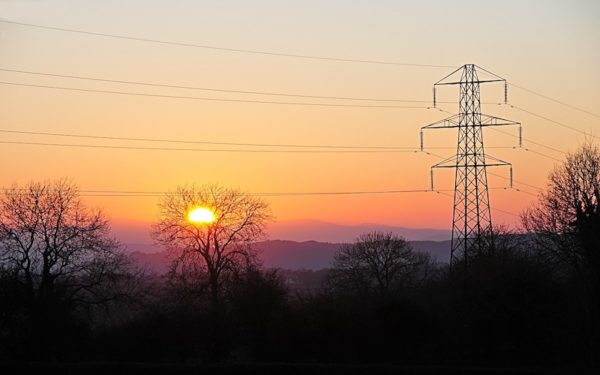
We must prepare our communities for climate impacts now. If we don’t, we will only see climate impacts get more extreme, and communities will suffer as a result. Photo: 1st Sgt. Don Veitch, MA National Guard
The climate crisis is fueling extreme weather and causing New Englanders to question whether these ominous weather patterns are the new normal. But what if we will soon be looking back on this summer as the “good old days”?
The recently released Intergovernmental Panel on Climate Change (IPCC) report has again re-emphasized our scientific confidence that climate change is occurring, is caused by humans, and will continue to worsen without rapid reductions in emissions. It’s clear that we can no longer put our heads in the sand and ignore the rapidly escalating impact of climate change on our communities. Increased flooding, deadly heatwaves, and stronger storms are here now. We’re running out of time to adapt to this new reality and save lives.
Our focus must now be on climate readiness. We must plan for this future and take action today to prevent the situation from worsening. If we don’t, we will only see climate impacts get more extreme, and communities will suffer as a result.
Climate Readiness Starts (Literally) from the Ground Up
Now is the time for Massachusetts to be actively thinking ahead as we permit and build the housing and infrastructure of the next 50 years. We need policies and codes to promote smart, sustainable development and take climate risks into account as buildings and infrastructure are permitted and built.
For instance, we need to update Massachusetts’ building codes. The state’s current code relies on historical weather patterns and data to guide the design and construction of new development and does not consider climate impacts now or into the future. We’ve seen how quickly patterns can shift – areas that historically haven’t seen flooding now can find themselves inundated suddenly. Many buildings developed today will be around for at least 50 years, so it makes sense to consider future projections when crafting building codes.
Similarly, utilities like National Grid and Eversource have infrastructure and facilities vulnerable to flooding, sea level rise, and extreme weather. Yet, they are not doing enough to incorporate resilience to future climate impacts into the electric grid. We must consider requiring these utilities to proactively plan for climate risks to their facilities and make the changes needed to avoid disasters like the devastating Texas blackout we witnessed earlier this year.
We Must Protect Our Most Vulnerable Among Us
It is an unfortunate truth that while natural disasters don’t discriminate by race or ethnicity, they do exacerbate the stark inequities that already exist. The region’s Black and Brown communities, who tend to live in less resilient neighborhoods because of redlining, will suffer more as climate impacts worsen.
That’s why we need to require that new development and infrastructure identify and take steps to eliminate the unequal impacts of climate change on environmental justice communities – on those who will be impacted most and who have the fewest resources to respond to and bounce back from disaster.
Together with efforts to reduce climate-damaging emissions, these climate-readiness actions would create more resilient cities and towns across Massachusetts and could be a model for other New England states to follow. There has long been consensus that climate change is happening and that it’s creating more powerful summer and winter storms and longer heatwaves. The science is settled. Now, we must get to work protecting communities and adapting to the changes we will see in the coming years.
We Know How to Respond to the Climate Crisis – Now We Must Turn that Knowledge into Climate Action
It’s easy to become overwhelmed in the face of the bad news about climate change, but what is happening all around us each day is a call for us to do more and to push our leaders to take this threat seriously. This is our chance to not only make Massachusetts ready for climate change but also to make things better for so many people across Massachusetts, especially those in vulnerable and low-income communities. Let’s take that chance.
Dr. Mathew Barlow is Professor of Climate Science in the Department of Environmental, Earth, and Atmospheric Sciences at the University of Massachusetts Lowell. Deanna Moran is Director of Environmental Planning at Conservation Law Foundation.



